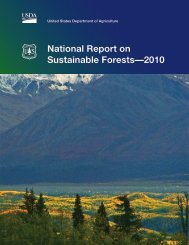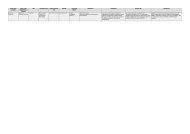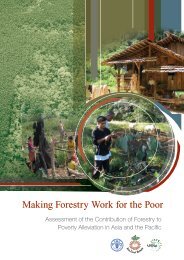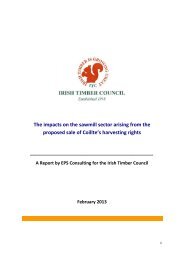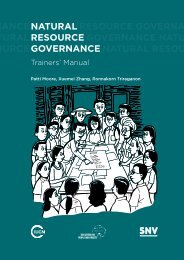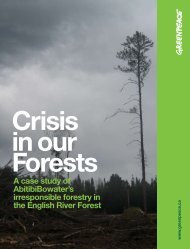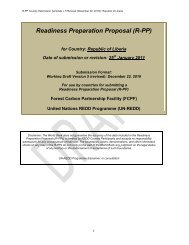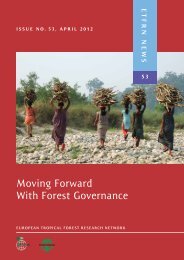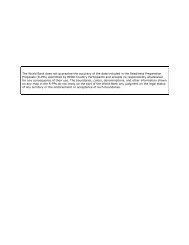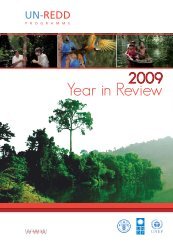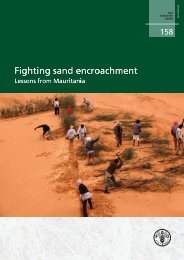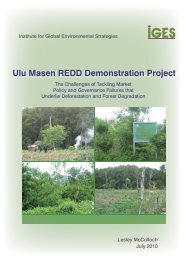pdf 1242 KByte - JIKO
pdf 1242 KByte - JIKO
pdf 1242 KByte - JIKO
Create successful ePaper yourself
Turn your PDF publications into a flip-book with our unique Google optimized e-Paper software.
Policy Paper: Assessing prerequisites for market-based REDD+ activities 32<br />
improved data availability in the near future. By contrast, institutional and legal readiness will prove even<br />
more difficult to achieve. Installation of functional institutions able to successfully coordinate and oversee<br />
REDD+ activities, development of strategies on how to deal with forest tenure and carbon rights as well as<br />
the establishment of national safeguards and standards will in most cases only be possible with external assistance<br />
and may take a long period of time. However, external support alone will not suffice to overcome<br />
these challenges but a serious commitment of governments for achieving policy readiness through the correct<br />
identification of drivers and the choice of respective policies is equally necessary. Here again, capacities are<br />
still insufficient.<br />
With REDD+ countries displaying large differences in their progress towards meeting the requirements for<br />
participating in a market-based REDD+ mechanism, a general integration of REDD+ credits into carbon<br />
markets is currently clearly out of reach. Without totally excluding the possibility of including REDD+ certificates<br />
in future carbon markets, such step should be considered at a later point of time, possibly in 2020,<br />
after a thorough assessment of the progress made by REDD+ countries has been conducted. Furthermore,<br />
outstanding issues such as additionality and permanence will have to be solved if REDD+ certificates are to<br />
be used for offsetting purposes.<br />
The way forward<br />
In the meantime, a separate REDD+ market could be established on a step-by-step basis. Following this<br />
approach, countries meeting clearly defined admission requirements could successively be authorized to<br />
enter the market to implement result-based REDD+ activities while countries not yet prepared for the market<br />
would continue receiving readiness support on a fund basis. There are several advantages associated with<br />
such an approach.<br />
1. Fast-start activities that immediately reduce forestry-related emissions can be combined with the<br />
goal of expanding the REDD+ market in the long-run.<br />
2. Important insights into the functioning of a REDD+ market could be gained and current knowledge<br />
gaps filled, without jeopardizing the integrity of the existing carbon markets.<br />
3. REDD+ countries would continue receiving support in their activities related to all three readiness<br />
building blocks.<br />
4. REDD+ countries would be incentivised to implement the required steps, potentially triggering progress<br />
towards market readiness.<br />
5. The progress of readiness activities could be carefully monitored and evaluated, while experiences<br />
with REDD+ implementation could be gained and implementation difficulties and potential solutions<br />
be identified.<br />
In pursuing such an approach, future REDD+ activities must ensure that progress in the realm of institutional<br />
and legal readiness keeps up with the improvements of technical readiness. More generally, a well-balanced<br />
treatment of all three readiness building blocks’ elements with due consideration of their particular implications<br />
for achieving LEEE-outcomes should be the aim of any future REDD+ readiness activity.<br />
Nicolas Kreibich, Christof Arens and Wolfgang Sterk<br />
Wuppertal Institute




